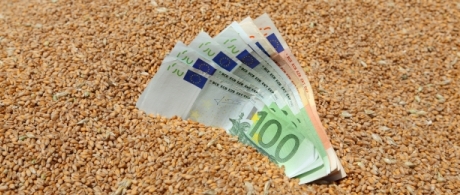The slowdown in emerging markets leaves the eurozone even more reliant on exports to the US and UK to compensate for its feeble domestic economy.

The eurozone is banking on a weak euro and strong global growth to boost exports and inflation and offset the weakness of domestic demand. How likely is this? China might yet avoid a recession, but there is no doubt that it is set for a period of much slower growth. At the same time, pretty much every emerging market is weakening, partly because of their dependence on China, and partly because of sluggish productivity growth. The US Federal Reserve’s decision not to increase official interest rates is welcome: a rise would have prompted further capital outflows from emerging markets. But there is no doubt that the global economy is labouring, and that this poses a threat to the eurozone’s anaemic recovery.
The eurozone ran a trade surplus of €125 billion over the first six months of 2015. Over the same period of 2011, it had a deficit of €17 billion. Over the last four years, exports have risen 18 per cent; imports just 2 per cent. The data for net exports (exports minus imports), which measures the impact of foreign trade on economic growth, is striking. Between the first half of 2011 and the first half of 2015, the eurozone economy expanded by 1 per cent. Without rising net exports, it would have shrunk by 1.3 per cent. In short, without global demand, there would have been no eurozone recovery at all.
Without global demand, there would have been no #eurozone recovery at allTweet this
The eurozone will certainly be hit by the slowdown in China and elsewhere. Emerging markets buy over a quarter of eurozone exports, and these are set to come under pressure, while the competitiveness of emerging market manufactured goods will increase as the value of their currencies falls. Eurozone net exports to these economies, especially China’s, could weaken substantially. Can the Anglo-Saxons continue to act as the eurozone’s ‘consumer of last resort’ and offset the impact on the currency union of the slowdown in emerging markets?
Nearly half of the increase in #eurozone exports since 2011 was to the US & UK; just 7% to #ChinaTweet this
Meanwhile, there is little to suggest that domestic demand in the eurozone will be strong enough to deliver robust GDP growth. Domestic demand has picked up over the last year as lower inflation and energy prices have temporarily boosted household incomes. But this is largely a one-off boost to growth. There is no sign of a pick-up in investment in the eurozone as a whole. Fiscal policy has become mildly expansionary, and should remain so, but there is no prospect of a major programme of fiscal stimulus.
The #currencyunion cant rely on a weak € & strong global economy to offset economic weakness at homeTweet this
Written by Simon Tilford
Simon Tilford is deputy director at the Centre for European Reform.
- See more at: http://www.cer.org.uk/http%3A/%252Fwww.cer.org.uk/insights/will-eurozone-reap-what-it-has-sown?utm_source=All+website+signups+as+of+21+March+2014&utm_campaign=4b1451efc8-bulletin104_st_eurozone_reap_it_has_sown&utm_medium=email&utm_term=0_c3be79867d-4b1451efc8-301763949#sthash.XEg8zLCi.dpuf
Δεν υπάρχουν σχόλια:
Δημοσίευση σχολίου